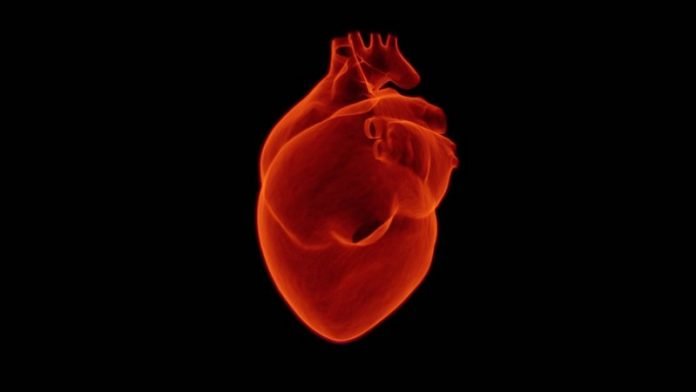
In a new study from St. Thomas’ Hospital, researchers found that hospitalized COVID-19 patients with early, undetected heart failure were nearly 5 times more likely to die compared to patients without the problem.
Heart risk factors and/or disease have been recognized as COVID-19 risk factors. Researchers hypothesized that heart failure would be linked to more severe cases of COVID-19 in hospitalized patients.
In the study, the team analyzed death rates for 129 hospitalized COVID-19 patients in Wuhan, China, and 251 hospitalized COVID-19 patients in South London. The average patient age was 58 years.
The team measured first-phase ejection fraction with conventional echocardiography imaging conducted at hospitalized patients’ bedsides.
First-phase ejection fraction is a measure of the left ventricular ejection fraction until the time of maximal ventricular contraction. An unhealthy result can be an early, undetected sign of heart failure.
Researchers note that there is not a universally established ‘normal’ value for first-phase ejection fraction. Based on previous research, they estimated that the normal first-phase ejection fraction value should be above 25%.
When the first-phase ejection fraction was less than 25%, researchers referred to it as ‘impaired,’ suggesting relatively subtle signs of heart damage.
The authors found that COVID-19 patients with a first-phase ejection fraction of less than 25% had a nearly five-fold higher risk of death than those with an ejection fraction of 25% or higher.
They also found that a similar proportion of people with similar risk factors who did not have COVID-19 had low values of first-phase ejection fraction.
This suggests that the damage to the heart may be due to chronic pre-existing conditions and was not the result of COVID-19 infection.
The team says patients with early heart failure could be prioritized for vaccines and, if they get COVID-19, monitored closely at the early stages of their illness to prevent deterioration.
If the results are confirmed, first-phase ejection fraction could be a new way to identify patients at elevated risk of dying from COVID-19 and possibly other types of pneumonia.
If you care about heart health, please read studies about your protein choice linked to your heart disease risk and findings of you can do these 4 things to reduce inflammation, prevent heart disease.
For more information about heart disease and your health, please see recent studies about this type of supplement may help cut heart disease risk and results showing that common bladder drug may harm your artery and heart health.
The study is published in Hypertension. One author of the study is Phil Chowienczyk, M.B.B.S., B.Sc.
Copyright © 2021 Knowridge Science Report. All rights reserved.



